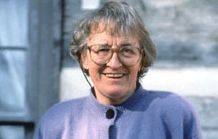
A great article on the grieving process and the “stages” approach of Kübler-Ross, who stated that dying underwent five stages: denial, anger, bargaining, depression, and acceptance.
Below are 10 quotes thatI copied from the article and that summarize the main points for me:
1. Though Kübler-Ross captured the range of emotions that mourners experience, new research suggests that grief and mourning don’t follow a checklist; they’re complicated and untidy processes, less like a progression of stages and more like an ongoing process—sometimes one that never fully ends.
2. “Sorrow . . . turns out to be not a state but a process,”
3. Despite the slew of self-help books that speak of the “overwhelming” nature of loss, we are designed to grieve, and a good number of us are “resilient”
4. In “Mourning and Melancholia” (1917), Freud suggested that mourners had to reclaim energy that they had invested in the deceased loved one. Relationships take up energy; letting go of them, psychiatrists theorize, entails mental work. When you lose someone you were close to, you have to reassess your picture of the world and your place in it. The more your identity was wrapped up with the deceased, the more difficult the loss.
5. Parkes, drawing on work by John Bowlby, an early theorist of how human beings form attachments, noted that in both cases—acute grief and children’s separation anxiety—we feel alarm because we no longer have a support system we relied on.
6. Without rituals to follow (or to invite my friends to follow), I felt abandoned, adrift.
7. Many mourners experience grief as a kind of isolation—one that is exacerbated by the fact that one’s peers, neighbors, and co-workers may not really want to know how you are. We’ve adopted a sort of “ask, don’t tell” policy. The question “How are you?” is an expression of concern, but mourners quickly figure out that it shouldn’t be mistaken for an actual inquiry.
8. Certainly, some mourners need more than the loving support of friends and family. But making a disease of grief may be another sign of a huge, and potentially pernicious, shift that took place in the West over the past century—what we might call the privatization of grief. Mourning rituals in the West began to disappear…within a few generations grief had undergone a fundamental change: death and mourning had been largely removed from the public realm.
9. “Today it would seem to be believed, quite sincerely, that sensible, rational men and women can keep their mourning under complete control by strength of will and character, so that it need be given no public expression, and indulged, if at all, in private, as furtively as . . . masturbation.” In Western countries with fewer mourning rituals, the bereaved report a higher level of somatic ailments in the year following a death.
10. “I now know that the purpose of my life is more than these stages. I have been married, had kids, then grandkids, written books, and traveled. I have loved and lost, and I am so much more than five stages. And so are you.”


